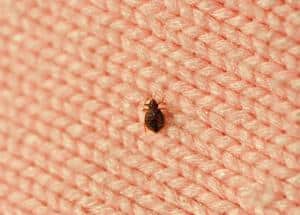Bed bugs are little creatures that you don’t want to have in your house. They are highly invasive and hard to find due to their small scale. A lot of people wonder: “Can bed bugs live on plastic?” The simple answer is yes, but there are actually quite a few details to it.
What to Know About Bed Bugs and Plastic
Do bed bugs live on plastic? What am I supposed to do with them? Once you have to deal with these small creatures, you will only have more and more questions.
Bed bugs can survive on a lot of surfaces and materials, so getting rid of them can be hard. Don’t worry, because following all of the needed advice you will be able to solve the problem in no time.
Do Bed Bugs Survive in Plastic?
As we know, bed bugs usually tend to settle in places where they can easily access their main food source – humans. There are a lot of ways to get rid of them and capture them, and you probably have seen plenty of tips and life hacks about it.
Of course, critical thinking is our main weapon, so you should consider everything before doing it. Do bed bugs like plastic? Not really. They can’t eat it, and that makes plastic their so-called enemy.
Bed bugs also don’t have the strength to cut through it, so it is a perfect containment chamber for them.
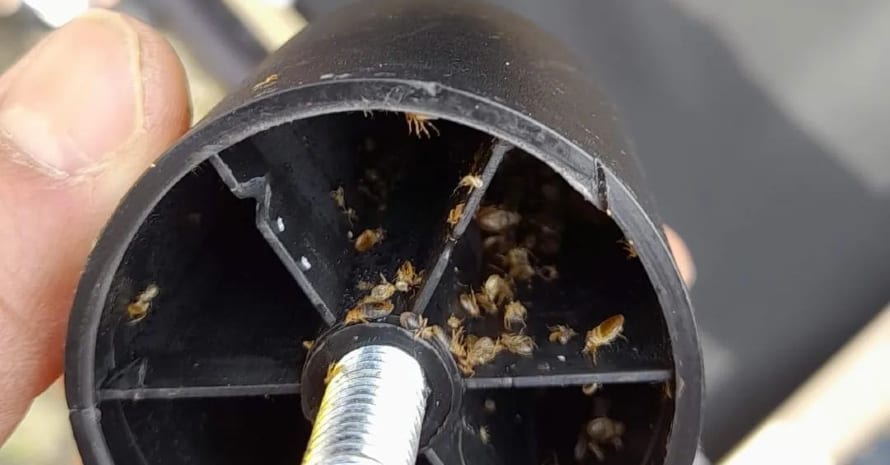
Plastic bags can be your savers when it comes to capturing bed bugs. They can stay sealed for a long time, but it doesn’t guarantee you full protection from these parasites.
You need to make sure that there are no ways of them getting out, as you will need to start over from scratch. Usually, adult bed bugs can survive in plastic for quite a long time, from four to six months. You cannot seal the bag completely, creating a vacuum, because to do that, you will need to have professional equipment.
We figured that you cannot deny air getting into the bag, but having bed bugs in plastic is still helpful. Remember to clean everything after them and don’t throw them out into a regular bin because the bag can accidentally tear, letting all of the insects back in. Unfortunately, you can’t catch all of them, but slowly eliminating most of the colony, you can reduce the damage.
How Does Plastic Help Kill Bed Bugs?
Killing bed bugs with black plastic bags doesn’t seem like a problem, but there are some catches to it. Plastic bags won’t really help you kill them but can be the first step in solving the problem. If you put some of them into the bag, you can pour strong insecticides in there and then leave it in the sun for a couple of hours.
Bed bugs don’t like high temperatures, that’s why a lot of professionals from pest control use steam machines against them. When combining heat with heavy chemicals, you should be careful not to harm yourself.
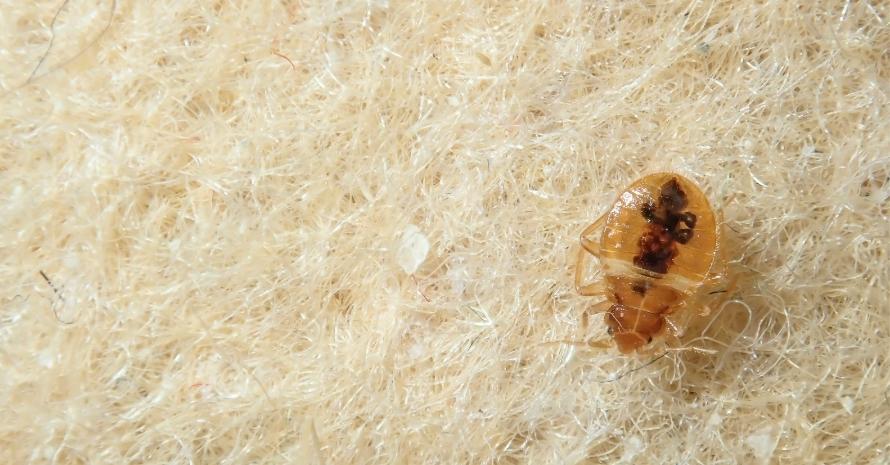
Plastic can be used as a surface that won’t let bed bugs spread around because they won’t find anything to eat. The main way to kill bed bugs is to either suffocate them or starve them. Having plastic bags around is a good practice in case you need to store the caught specimens somewhere.
Bed bugs can live in plastic, and that can be a problem. For example, they infest microwaves, plastic toys, space behind drawers, plant pots. They will be looking for a cozy dark place where you can’t reach them. In this case, you should consider wiping your plastic equipment with bleach or strong chemicals to scare them off.
Should I Use Plastic Against Bed Bugs?
If you are looking for something to help you with bed bugs, plastic surely can be of help. First of all, plastic bags are the thing that will help you capture insects. Ziplocs guarantee that they won’t get out, and in plastic bins, they won’t be able to crawl out from the slippery inside.
Plastic can withstand harsh treatment, such as water and cold, so this material won’t let you up when something terrible happens. Just make sure that the caught bed bugs don’t have any ways out, like small holes. Store your plastic containers in places where children or animals can’t reach them.
On the contrary, plastic can be the container for your clean clothes that you don’t want to contaminate while dealing with bed bugs. Store them in a clean and dust-free place, so no insects will get in there.
You can also put the suspected things with bed bugs in the bags, then you won’t have to worry about them spreading from the piece of clothing or plastic toy.
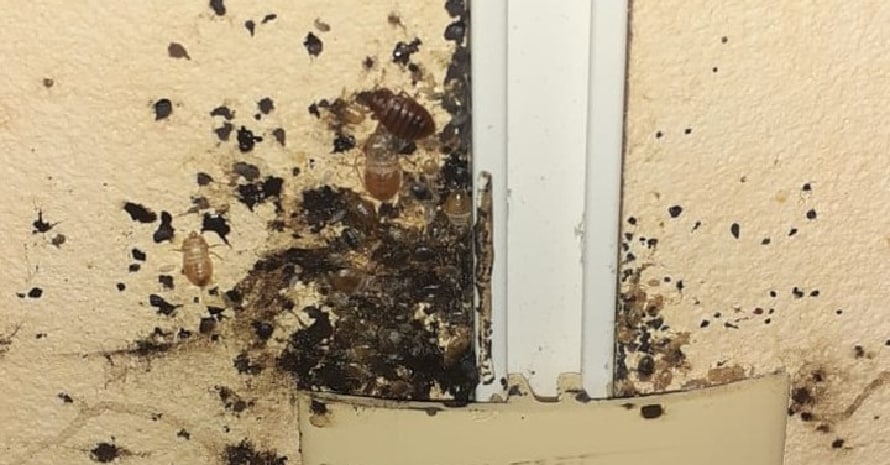
Unfortunately, because you can’t create a vacuum in the bag, it won’t help you kill bed bugs, but restricting them from their main food source, blood, will help you a great deal.
They become sluggish and eventually fall into a state reminiscent of unconsciousness, remaining still until they sense the potential blood source nearby. The first thing you have to do is catch the adult specimens because they lay eggs in great amounts, and if they won’t be eliminated, you will have to deal with a lot more bed bugs.
Then move on to nymphs, which grow from little white eggs. If you restrain them in the early stages from blood, they won’t fully develop and thus can’t reproduce more.
Plastic Bed Covers Against Bed Bugs
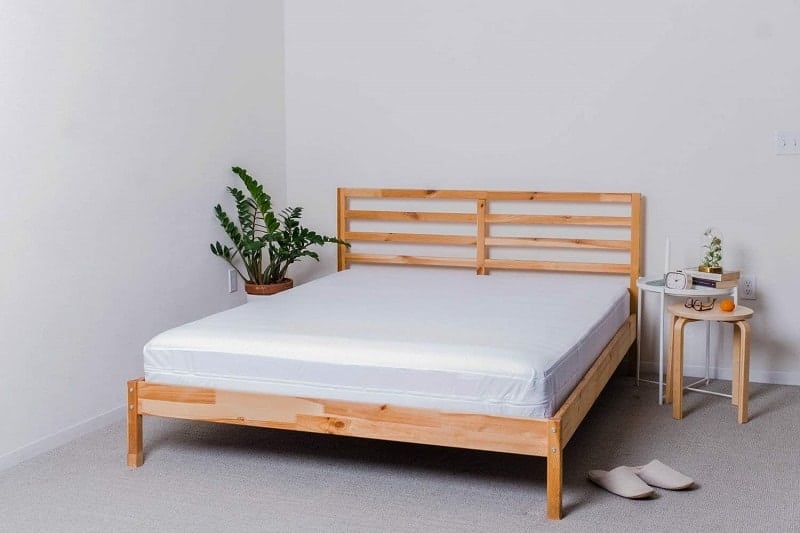
A great thing to have are plastic bed bug bed covers. They are usually made for mattresses from a special type of plastic that is not harmful to people. Such cases ensure that your mattress will stay clean and won’t let anything get into the carcass of the bed.
If you have bed bugs in the mattress, these plastic covers, of course, complete their function and don’t allow them to get through the material to you. Bed bugs won’t even be able to crawl through zippers because they are made specifically to deny any ways of different parasites getting on the bed.
Although, in case of bed bugs coming from the outside, such covers won’t help you much. You can be sure that bed bugs won’t get into the mattress, but they will still freely explore the covers of the bed while you sleep.
Plastic covers are helpful for traveling because they don’t take up too much space, so if you are unsure about the safety of your bed in a hotel, you can simply bring them out.
They will protect you from any potential parasites that might live in an old mattress. And we know that it is better to prevent the issue beforehand than to deal with it after.
If you have children, plastic covers are a good choice for ensuring their health. Children are very curious and can bring almost anything on the bed, including different insects.
Bed bugs are common at a young age, as children won’t even notice them getting on them. Kindergartens are usually the source of such infestations, so always check your child when they come back home. Plastic bed covers are easy to wash and don’t stain that badly, so you don’t have to worry about your children covering them in paint or food.
FAQ
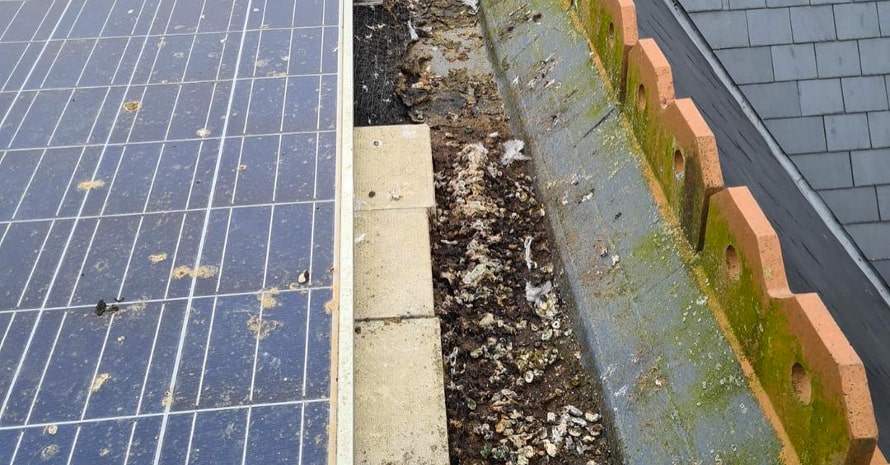
Various plastics are incredibly abundant in our surroundings, which is why many people have misconceptions about plastic and bed bugs. Here are the top questions we get asked.
Will bed bugs lay eggs on plastic?
Bed bugs tend to lay their eggs in tight places that are hard to access. It can be on plastic because they don’t care about which material the nymphs will hatch on, as long as they can get to a blood source.
How long do bed bugs live in a plastic bag?
Adult bed bugs can survive in sealed plastic bags for several months, so it is better not to forget to throw them out after you’ve successfully captured them.
Can bed bugs live in plastic toys?
Bed bugs prefer to live in dark small corners and things, and, unfortunately, they can be plastic toys. You should sanitize and regularly clean children’s toys to avoid getting bed bugs in the house.
Can bed bugs eat through plastic?
Bed bugs feed on blood because they are invasive parasites. They will not eat through the plastic but will wait for the moment you accidentally let them out.
Help Bed Bugs Leave Your House
Bed bugs are not the most welcome guests in our houses. It is better to prevent them from getting in beforehand. Plastic can help you contain and separate bed bugs from your other clothes and successfully get them out of your home.
What other tips from bed bugs would you like to know? What do you usually use against them? Please, share your opinion with us in the comments below.
Also read:
- Best Bed Bug Spray
- Best Bed Bug Fogger
- Best Bed Bug Steamer
- Do Bed Bugs Lay Eggs in Your Skin
- How to Get Bed Bugs Out of Carpet
- Can Bed Bugs Live on Leather
- Does Borax Kill Bed Bugs
References
- Bedbugs beware: New research may beat back bedbug epidemic (University Park, Pennsylvania)
https://www.psu.edu/news/research/story/bedbugs-beware-new-research-may-beat-back-bedbug-epidemic/ - A Case Study of Bedbug Infestation in the Student Dormitories of Iran-2018 (Journal of Clinical and Diagnostic Research)
https://www.researchgate.net/publication/336606522_A_Case_Study_of_Bedbug_Infestation_in_the_Student_Dormitories_of_Iran-2018 - Bed Bugs: Clinical Relevance and Control Options (Stephen L. Doggett,corresponding authora Dominic E. Dwyer, Pablo F. Peñas, and Richard C. Russelld)
https://www.ncbi.nlm.nih.gov/pmc/articles/PMC3255965/

